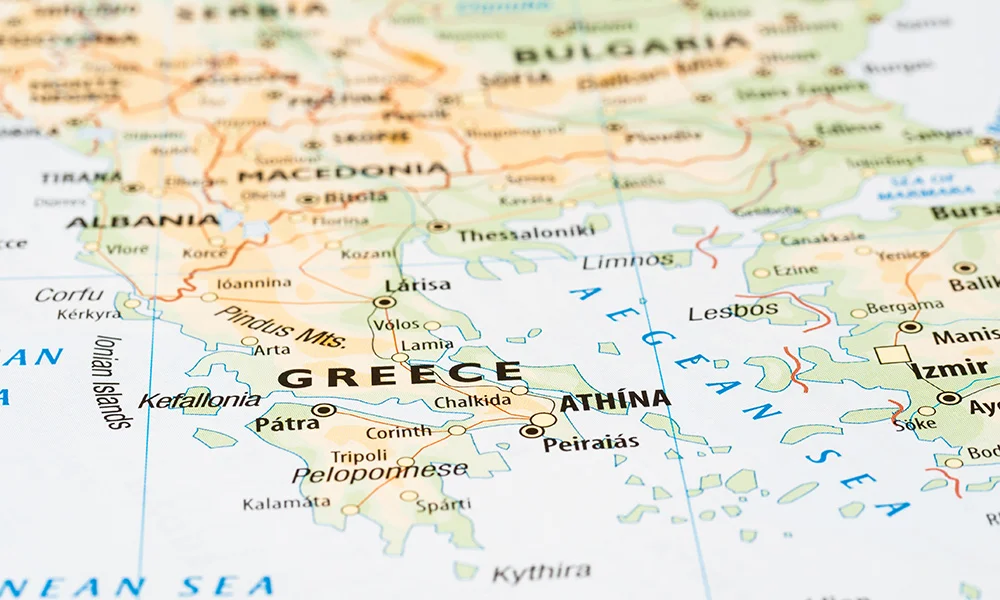The country that gave the world Socrates, Plato, and Aristotle is widely considered the cradle of philosophy and science—a place where education has always been essential for personal growth. Thanks to Greece, words like “academy,” “pedagogue,” “logic,” “seminar,” “gymnasium,” and of course, “school,” became part of our everyday vocabulary.
In this article, we take a detailed look at the Greek education system and what to consider when choosing a school for your child.
The Education System in Greece
Greece offers both public schools, which follow national traditions and focus on the Greek language, and international schools under American or British programs.
The Greek education system is divided into 3 levels: primary, secondary, and tertiary. Education is compulsory up to secondary school, and all children living in Greece, regardless of nationality, have to complete primary school and the first stage of secondary education (Gymnasio). Public education at these levels is free.
Adaptation in a new school environment in a different country can be challenging for children. In Greece, the level of support for international students varies depending on the type of school. For example, public schools often offer special classes for foreign students, where they focus on learning Greek to integrate smoothly. If there aren’t enough international students to form a separate class, the school may organize additional Greek language lessons.
Primary Education
Primary education in Greece begins with kindergarten, where children can enroll as early as 2.5 years old. While kindergarten isn’t mandatory, most parents choose to send their children to help them prepare for school.
The next stage is primary school (Dimotiko Scholeio), which lasts 6 years and starts at age 6. During this period, students study main subjects such as Greek language, mathematics, science, history, and art, as well as participate in physical education. Emphasis is placed on developing communication and social skills, along with cultural and moral development.
Secondary Education: Gymnasium and Lyceum
After graduating primary school, students automatically go to gymnasium (lower secondary school), which lasts for 3 years. Here, they continue studying core subjects and can also join various clubs and extracurricular activities. Grades are based on a 20-point system, and a minimum of 10 points is required to move on to the next level.
After gymnasium, students can either attend a lyceum (upper secondary school) or choose a vocational school. Both options offer specialized education—either preparing students for university or providing vocational training. At the end of each school year, students take exams, and successful graduates receive a diploma that qualifies them for entry into higher education institutions.
School Schedule
The school year in Greece typically begins around September 10 and ends June 15 for primary schools, and June 30 for gymnasium and lyceum.
Schools are closed during Christmas and Easter breaks, as well as on national holidays such as October 28, March 25, and others.
School hours:
- Primary schools: Classes run from 8:00 AM to 1:15 PM. Some schools offer extended hours until 4:30 or 5:30 PM (optional).
- Gymnasium and Lyceum: Classes run from 8:15 AM to 2:05 PM, with some offering extended hours until 4:00 PM.
How to Enroll Your Child in a Greek School
To enroll a child in a Greek school, parents have to submit the following documents:
- Birth certificate, apostilled and translated into Greek (has to be done through the Ministry of Foreign Affairs or certified legal professionals)
- Proof of residence (e.g., utility bill for electricity, water, or phone)
- Medical certificate from a pediatrician, stamped and signed
- Dental certificate
- Parent’s ID and contact details
- Parents’ residence permit
- Academic transcript (for children entering second grade or higher)
- Payment of any applicable school fees
Requirements may vary slightly depending on the region or type of school, so it’s best to check directly with the school in advance.
What to Consider When Choosing a School
There are several key factors to keep in mind when choosing a school: your child’s language level, your family’s long-term plans, and accessibility.
Language. If your family plans to live in Greece long-term, enrolling your child in a public school can help them fully immerse in the language and culture. If you prefer your child to continue studying in English, an international school would be a better choice.
Curriculum. International schools in Greece typically follow British or American programs, making it easier to transition if you relocate again—ideal for expat families.
Tuition costs. Public education is free, while international schools charge tuition ranging from €5,000 to €20,000 per year, depending on the institution, academic level, and additional services. Public schools may have extra costs for supplies, field trips, and optional classes.
Location and accessibility. Some international schools are located in the suburbs of Athens, which may add transportation costs. Consider proximity to your home when making a decision.
Extracurricular activities. International schools often offer a wide variety of after-school programs, including sports, languages, the arts, and theater. These programs support well-rounded development and help children integrate into the school community.
International Schools in Athens
Athens offers a wide selection of international schools. Here are a few of the top options:
ACS Athens (American Community Schools): Follows an American program and offers the International Baccalaureate (IB) program. One of the largest international schools in Athens, ACS serves students from over 60 countries. It offers a robust academic curriculum along with extracurriculars in sports, arts, and foreign languages.
Tuition: €9,000-€15,000 per year
International School of Athens (ISA): ISA follows the IB program and is accredited by international organizations, ensuring high educational standards. Students come from 42 countries and can participate in a wide range of activities, including arts and sports.
Tuition: from €12,000 per year
Byron College: A British-style school serving students from over 50 countries. Byron College offers the UK curriculum, including IGCSE and A-Levels, opening pathways to top universities worldwide.
Tuition: from €9,000 per year
St. Catherine’s British School: Affiliated with the British Embassy, this school follows the UK system and also offers the IB diploma, recognized by universities globally.
Tuition: from €10,000 per year
Campion School: A British curriculum school in Athens, with instruction in English and a strong academic foundation preparing students for IGCSE and A-Level exams.
Tuition: from €9,000 per year
How to Obtain Greek Residency for the Whole Family
Giving your children access to a European education, and enjoying all the other benefits of living in Greece, is simple if you have a local residence permit.
Greece offers one of the most attractive residency-by-investment programs in the world. You can obtain a renewable 5-year residence permit for the entire family by investing in real estate worth at least €250,000. You can include your spouse, children under 21, as well as both your and your spouse’s parents.
Processing a Greek Golden Visa typically takes 3 to 6 months.
Astons’ experts will guide you through every step of the Greek Golden Visa process and help you choose the ideal property. You can learn more during a free consultation with our specialists.



